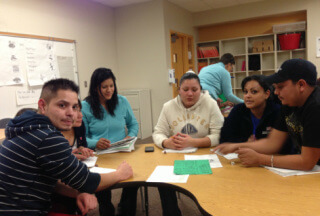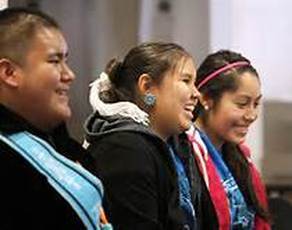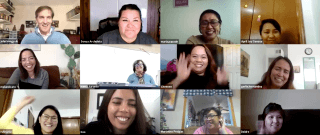K-12 schools, community colleges and universities have a growing population of non-native English speaking students. These English language learners struggle not only with developing their English skills but also with the Culture of US Academia

US educational institutions share a unique culture that can be strikingly different from one's own culture. Language is inseparable from culture and both play a defining role in how we see and interact in the academic environment.
Being able to understand the culture of US Academia and possessing the skills to thrive in a non-native culture is critical to both the success of the students, the sustainability of minority cultures and the ability of the teacher to .
There are four facets of culture that students and teachers need to explore.
Effective multicultural education depends on how teachers help English language learners (ELLs) integrate into the new academic culture.
Definition: Knowing about cultural traits and practices.
Example #1: Navajo
Culturally, Navajo youth are not encouraged to ask elders any questions.
Example #2: Hispanic
It is appropriate for Hispanic students to ask questions, but not challenge the teacher.
Example #3: US Academia
in an educational environment, students are expected and encouraged to ask questions
Definition: Knowing why cultural practices exist.
Example #1: Navajo
Respect for one's elders is demonstrated by listening to and observing one's elders.
Example #2: Hispanic
Respecting a teacher's authority takes precedent over one's performance.
Example #3: US Academia
A student demonstrates knowledge by questioning & challenging the teacher.
Definition: Knowing how to do cultural practices effectively.
Example #1: Navajo
Allowing elders to explain & demonstrate. Possess strong auditory and visual skills.
Example #2: Hispanic
Be able to ask questions without disrespecting the teacher's role in academia.
Example #3: US Academia
Know when to ask questions, how to formulate them, and how to ask them in class.
Definition: Knowing about one's own culture is critical.
Example #1: Navajo
Asking oneself how s/he feels about taking a more passive role in one's learning.
Example #2: Hispanic
Asking how comfortable one feels with culturally appropriate questioning.
Example #3: US Academia
Asking oneself how s/he feels about taking a more active role in one's learning.

Understanding the KASA of US Academia can have a huge impact on the success of students and teachers. Promoting multicultural education begins with this.
Students who become aware of cultural norms, why they exist, and what skills are required gain intercultural competence and develop the KASA they need to be career and college ready.
Teachers who understand the KASA of US Academia gain a greater ability to connect with non-native English speaking students (ELLs) and to consciously include KASA in teaching.
Schools that support multicultural education by providing K-12 teacher training on the KASA of US Academia consciously implement steps to improve intercultural competence in their schools.

TESOL Trainers has a host of remote training options that support your professional development goals. Our online workshops are experiential, engaging, and empowering. Our training programs are interactive; there are no lectures. Our professional development programs are enjoyable; teachers are so engaged that time flies by. Our training sessions will transform how your educators approach teaching and learning.
Contact John Kongsvik to learn more.
Click the button below to claim your free ebook and join our mailing list.